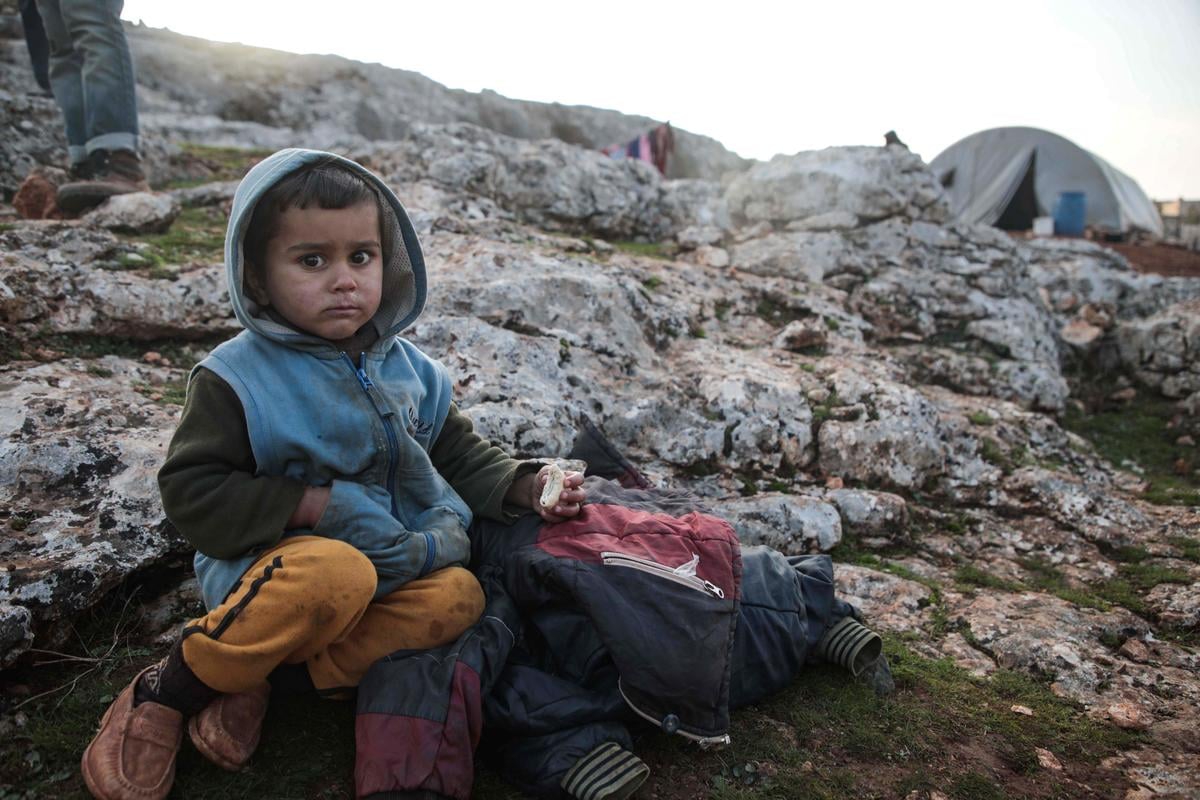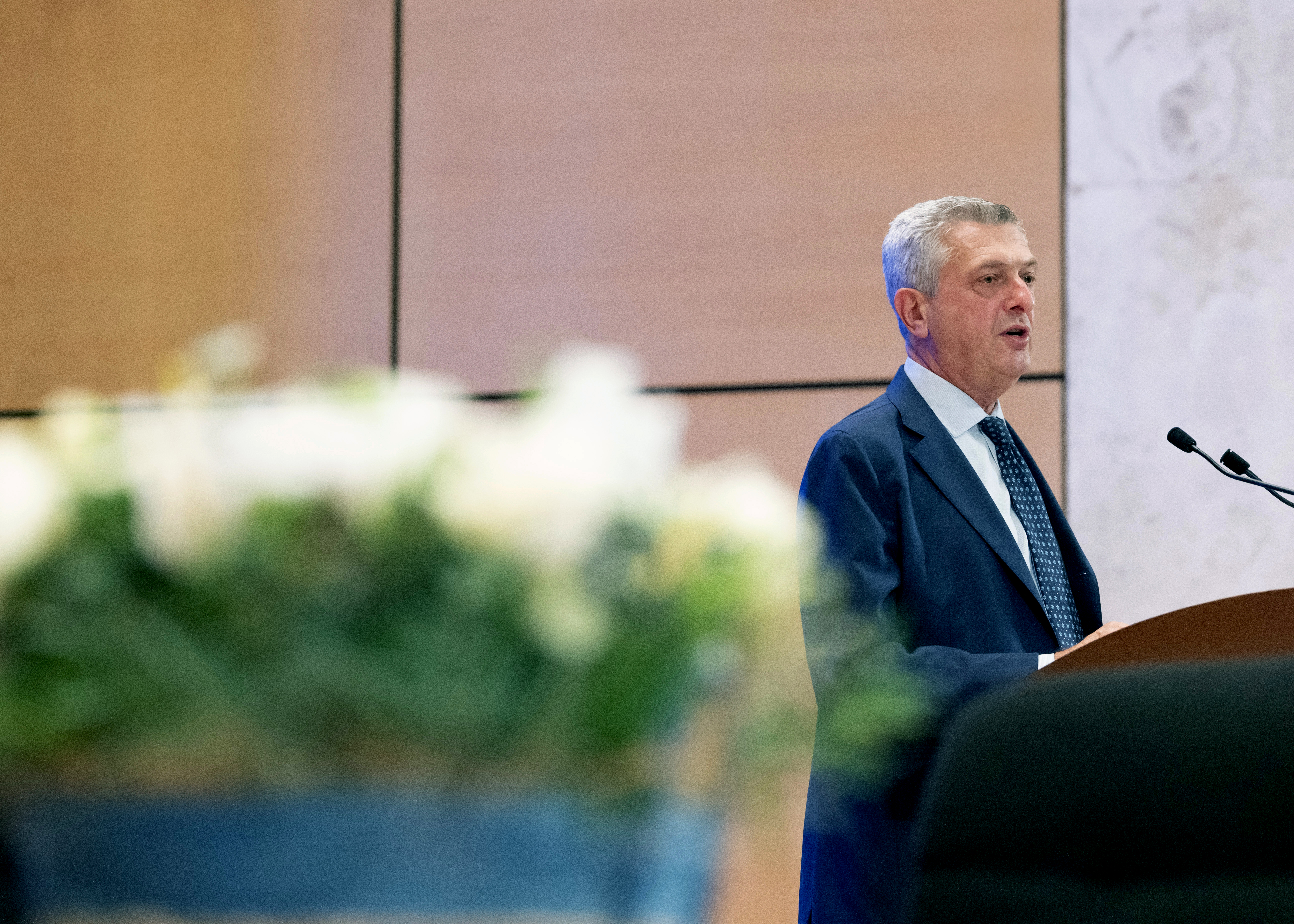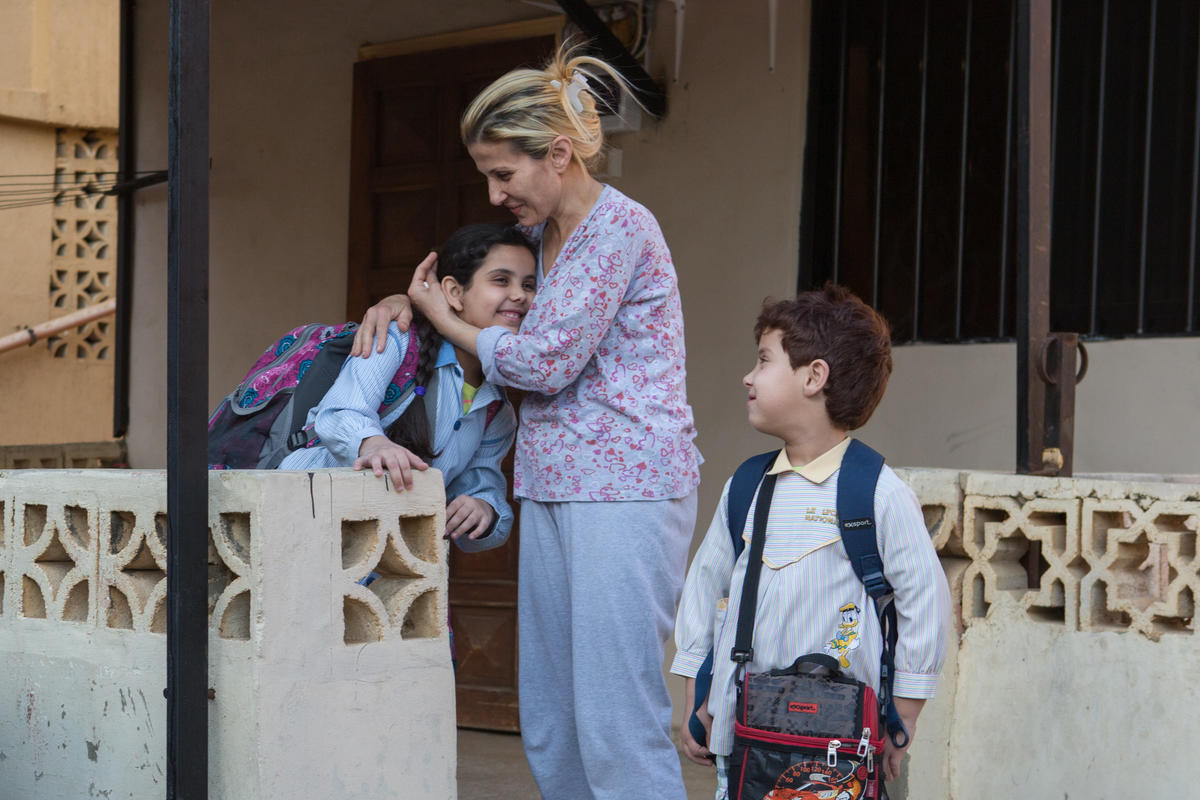UNHCR Chief visits Syrian capital, urges humanitarian access
UNHCR Chief visits Syrian capital, urges humanitarian access

DAMASCUS, Syria, Jan 21 (UNHCR) - In his first visit to Syria as UN High Commissioner for Refugees, Filippo Grandi today appealed to all parties to the conflict to allow regular, unimpeded and sustained access for humanitarian organizations to besieged and hard to reach areas.
Speaking during a one-day visit to Damascus, the head of the UN Refugee Agency, UNHCR, said: "People need our help. Another case of a child dying of starvation would be terrible."
He was echoing an appealLink is external he signed along with more than 120 humanitarian organizations and UN Agencies calling for humanitarian access to people in need in all parts of Syria.
Grandi held meetings with the Minister for Foreign Affairs, Walid Muallem, Deputy Foreign Minister Dr. Faisal Mekdad and the Minister of Local Administration, Omar Ghalawanji. Grandi emphasized UNHCR's commitment to deliver aid to internally displaced people in all parts of Syria. He also pledged cooperation to increase livelihood programs, on-line education and vocational training.
During a visit to a Syrian Arab Red Crescent (SARC) polyclinic for refugees and the internally displaced, Grandi presented first responders with seven new ambulances to meet growing emergency medical needs. He praised SARC for its impartial and courageous delivery across the country as UNHCR's biggest humanitarian partner.
At the clinic, he witnessed lines of people seeking treatment for chronic diseases and psychological conditions brought on by the war.
"The Syria crisis is the largest UNHCR is dealing with," Grandi said, adding: "That reality hits me when I talk to people treated here who are not only displaced, but also ill and traumatized."
The protracted nature of the Syria crisis is having a devastating effect on millions of ordinary Syrians, around 6.5 million of whom are displaced within the country, with a further 4.6 million living as refugees in neighbouring countries.
Some 13.5 million Syrians are deemed in need of humanitarian assistance. UNHCR has provided shelter and other aid to civilians displaced by the conflict, as well as psycho-social support, education and health services to nearly 800,000 people.
Also in Damascus, the UNHCR chief met with an elderly woman, Farida, who is now responsible for her six grandchildren. She has no idea what has become of her son and his wife and is living among over 70 other families in a converted former school building after fleeing fighting in her town 30 minutes outside of Damascus.
"I just want to know if their father is still alive," Farida told Grandi.The Um Atteyah shelter has no heat and the thin partition walls do not keep out the noise. UNHCR and local partners are working to upgrade the shelter and provide incentives and training to help adults generate income and to educate the children.
The UNHCR chief also met the UN team in Damascus and the UNHCR staff of 400 who travelled from across the country to meet the new High Commissioner.
Watch a video about the UN High Commissioner for Refugees' visit to Syria here.Link is external








